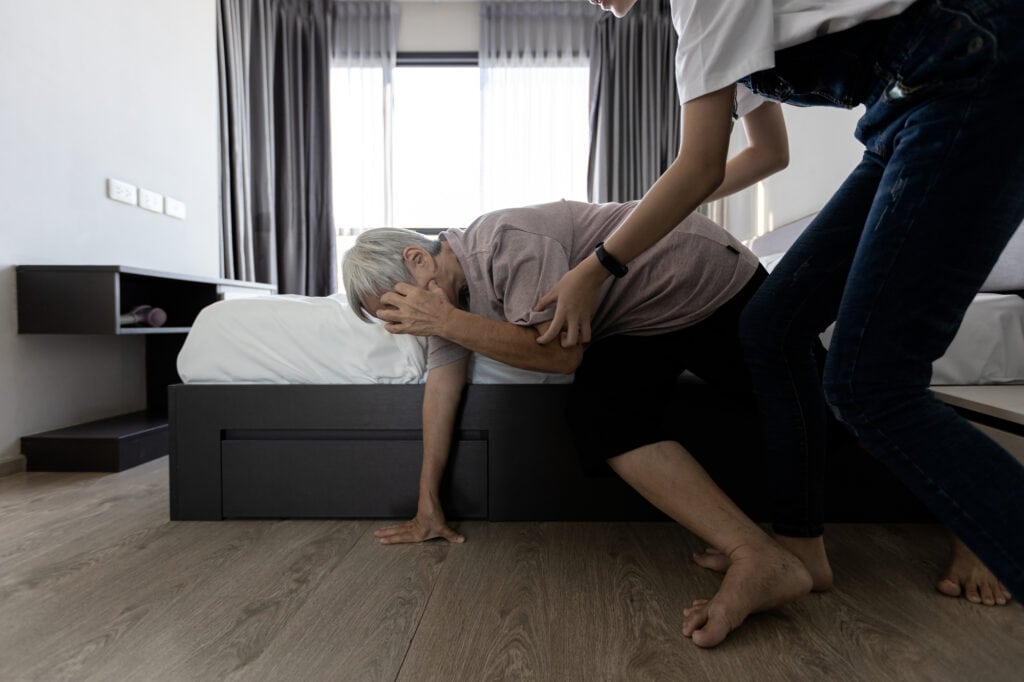Dropped Patients in Nursing Homes








When our loved ones must enter a nursing home, we trust the facility to provide them with compassionate care. Unfortunately, these facilities sometimes fail to treat patients properly, resulting in injuries.
Dropped patients in nursing homes are one clear indication that the facility is not providing adequate care. Nursing home staff must be prepared to accommodate patients who are not mobile or require assistance transferring from bed to chair. If they fail to provide an appropriate level of care, an experienced attorney can advise the family on taking legal action to protect their loved one.

How Patient Drops Happen in Nursing Facilities
Many nursing facilities have trouble attracting and retaining staff, so workers are often overworked and exhausted. To ensure that shifts are covered, nursing facilities might hire inadequately trained workers. However, moving patients with mobility issues requires training and skill. Hiring inexperienced or poorly trained staff could lead to dangerous situations for patients.
Drops could happen when workers:
- Transfer the patient from bed to a chair
- Transfer the patient between a chair and a toilet or shower
- Use transfer equipment like a Hoyer lift or gait belt improperly
- Use defective or broken transfer equipment
- Roll a patient on a bed to change the linens
- Move a wheelchair on or off a transport van
- Move a patient between a wheelchair and a stationary chair
Many patients require assistance with moving multiple times a day. If the facility is short-staffed, one person might try moving a patient when the transfer requires two, or a worker might try to rush the process. Any of these events could result in patient drops that can cause significant injuries.
Severe Injuries from Drops in Nursing Facilities
Patients who require mobility assistance are already in delicate health. They may take medication that could cause excessive bleeding. Age and lack of physical activity cause bones to lose mineralization and become more prone to fractures. Limited mobility can impact lung function and make a patient more susceptible to pneumonia. These factors make drops in Cleveland nursing homes especially dangerous for patients.
Drops could cause spinal compression fractures, skull fractures, and other severe injuries. A drop could further limit a patient’s mobility, increasing the likelihood of developing a respiratory illness. Drops can lead to traumatic brain injuries, brain bleeds, and damage to internal organs from which the patient might not recover.
Holding an Assisted Living Facility Liable for Drops
Nursing facilities must adhere to a reasonable standard of care for their residents. Because of the high mortality rate associated with drops and falls among nursing home residents, facilities must have safety procedures for patient transfers. If a nursing home staff member drops a patient, the staff was likely not following the correct procedures.
A failure to adhere to reasonable safety practices is negligence, and a nursing home abuse attorney can pursue damages on behalf of the dropped patient. Damages could include the cost of treating the injury and compensation for the resident’s physical pain, mental anguish, and diminished quality of life. If the family decides to transfer the patient to another facility, damages could include relocation expenses.
However, injured patients and their families have a limited amount of time to decide how to respond to a drop. Ohio Revised Code §2305.10 requires anyone seeking damages to bring a lawsuit within two years of the incident that caused the injury. It is advisable for a family to seek legal advice well before the statute of limitations expires to ensure that a professional can collect evidence soon after the nursing home drop.
Consult an Attorney after a Drop in a Nursing Home
Drops in a nursing home are preventable events that should not occur when following proper training and procedures. If you or your loved one was dropped and suffered injuries, you could hold the facility liable for its negligence.
Consult with an attorney at Tittle & Perlmuter who represents dropped patients in nursing homes. You could receive monetary damages and prevent a similar incident from harming another patient. Reach out to our legal team today for a free consultation and to discuss your options.

